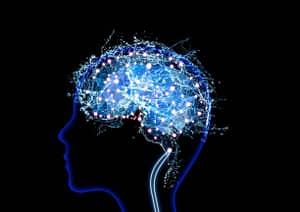

Neurologists and advocates for brain health have effectively dispelled the age-old belief that individuals with epilepsy are suffering from a spell, curse, or spiritual attack.
“Epilepsy in Nigeria is often misattributed to witchcraft, demonic possession, or familial curses. Yet, we affirm that epilepsy is actually a neurological condition with a basis in science,” the experts declared.
These statements were made around International Epilepsy Day, observed on the second Monday of February, which this year was marked on February 12 under the theme, “Milestones on My Epilepsy Journey.”
The World Health Organization (WHO) describes epilepsy as the most commonly occurring chronic brain disease affecting individuals across all age demographics. According to America’s National Institute of Neurological Disorders and Stroke, “Epilepsy is a condition where groups of nerve cells in the brain sometimes signal abnormally, leading to seizures.”
The WHO reports that over 50 million people worldwide are living with epilepsy, with nearly 80% residing in low- and middle-income countries. Moreover, it highlights that “70% of those living with epilepsy could lead a seizure-free life with appropriate diagnosis and treatment.”
To commemorate International Epilepsy Day, the Sub-Saharan Africa Brain Health Initiative hosted a virtual gathering under the banner, “Epilepsy: Epidemiology, Language and Policy.” Dr. Laz Eze, co-founder of SSABHI, emphasized, “Epilepsy encompasses all dimensions of brain health—cognitive, mental, social, emotional, and physical. It is crucial to shift our perspective towards treating these disorders from a brain health standpoint.”
Professor Ikenna Onwuekwe, a specialist in Clinical Neurology and Internal Medicine at the University of Nigeria, Nsukka, categorically refuted the idea that epilepsy results from supernatural causes, stating, “Epilepsy is a brain disorder with identifiable causes.”
He further noted, “While epilepsy has genetic factors and can be inherited, the majority of cases are either preventable or treatable. Approximately 70% of epilepsy patients respond so well to treatment that they may discontinue medication and remain seizure-free for life.”
Addressing the myth of epilepsy being contagious, Onwuekwe clarified, “Epilepsy is not a communicable disease. It cannot be spread through physical contact or by exchanging body fluids.”
On International Epilepsy Day, Onwuekwe advocated for a more informed and accepting view of epilepsy, urging, “Children and adults with epilepsy should not face stigma or discrimination. It is critical to understand that epilepsy is not a result of witchcraft, ancestral curses, or infectiousness.”
Echoing this sentiment, Professor Onyeadumarakwe Obiako from Ahmadu Bello University, Kaduna, underscored, “Epilepsy, similar to stroke and Parkinson’s disease, is a brain-related condition, not a spiritual affliction. It is primarily a disease of the brain.”
He added, “Although epilepsy treatment is usually lifelong, it is not a disease that can be transmitted to others.”
Through their clarifications and insights, these professionals aim to dismantle longstanding myths surrounding epilepsy, fostering a more knowledgeable and empathetic environment for those affected by the condition.

[…] Read Also: Epilepsy is a disease, not a spiritual attack – Neurologist […]
[…] Read Also: Epilepsy is a disease, not a spiritual attack – Neurologist […]